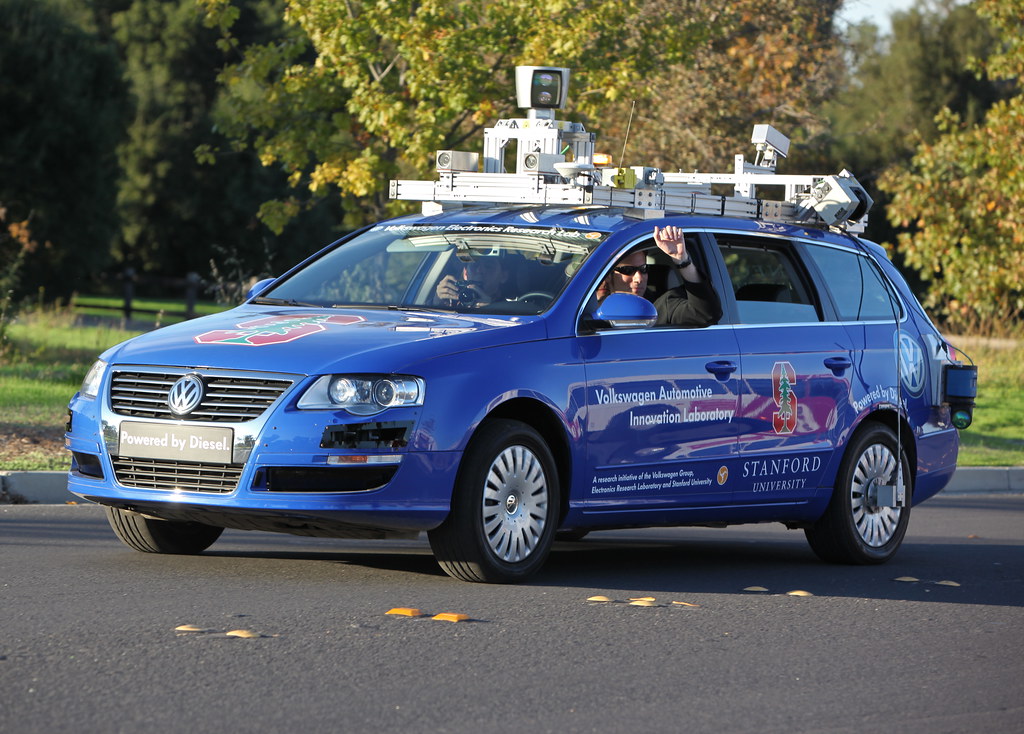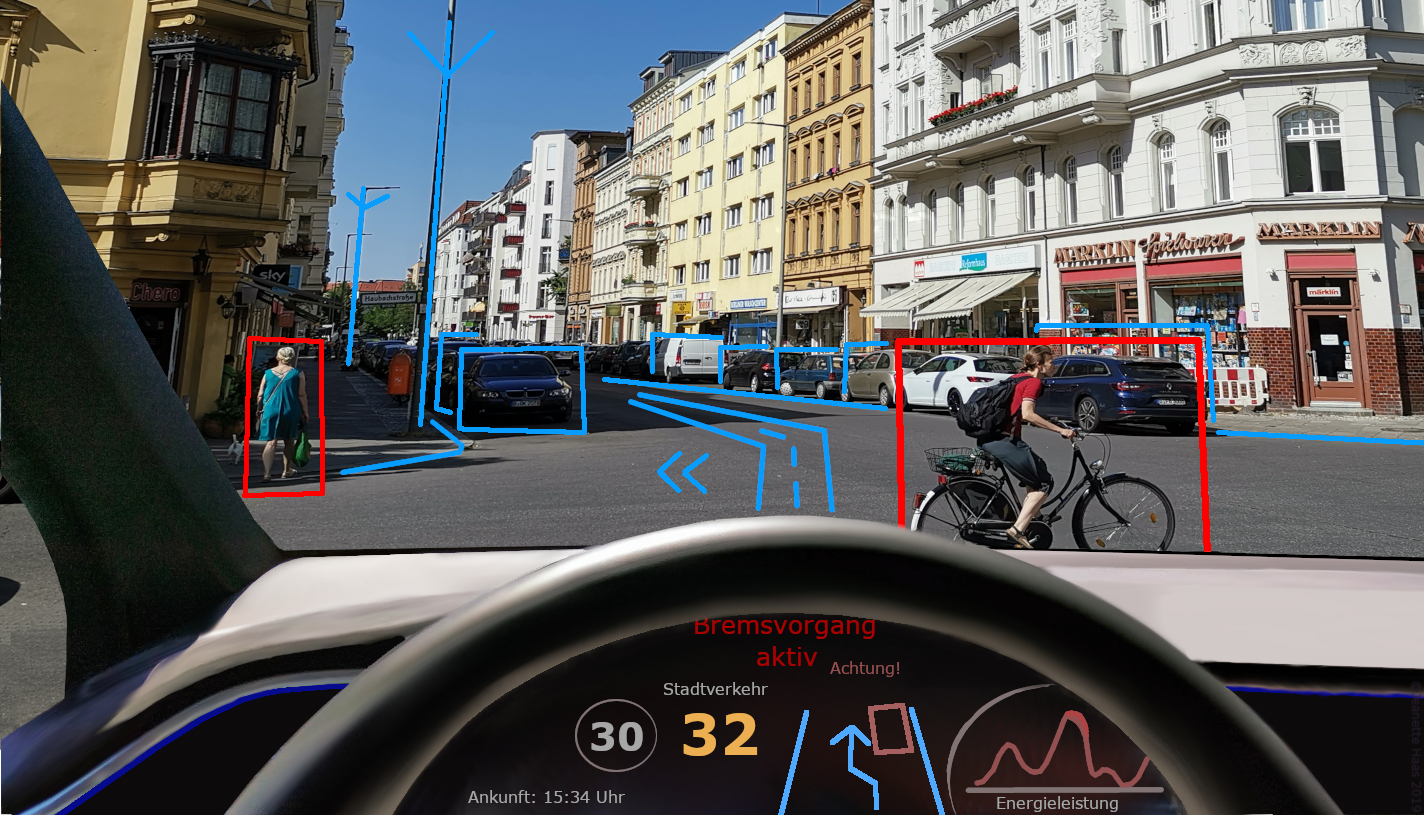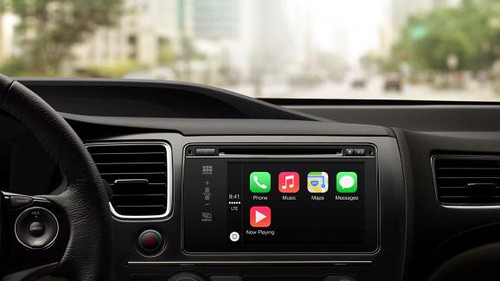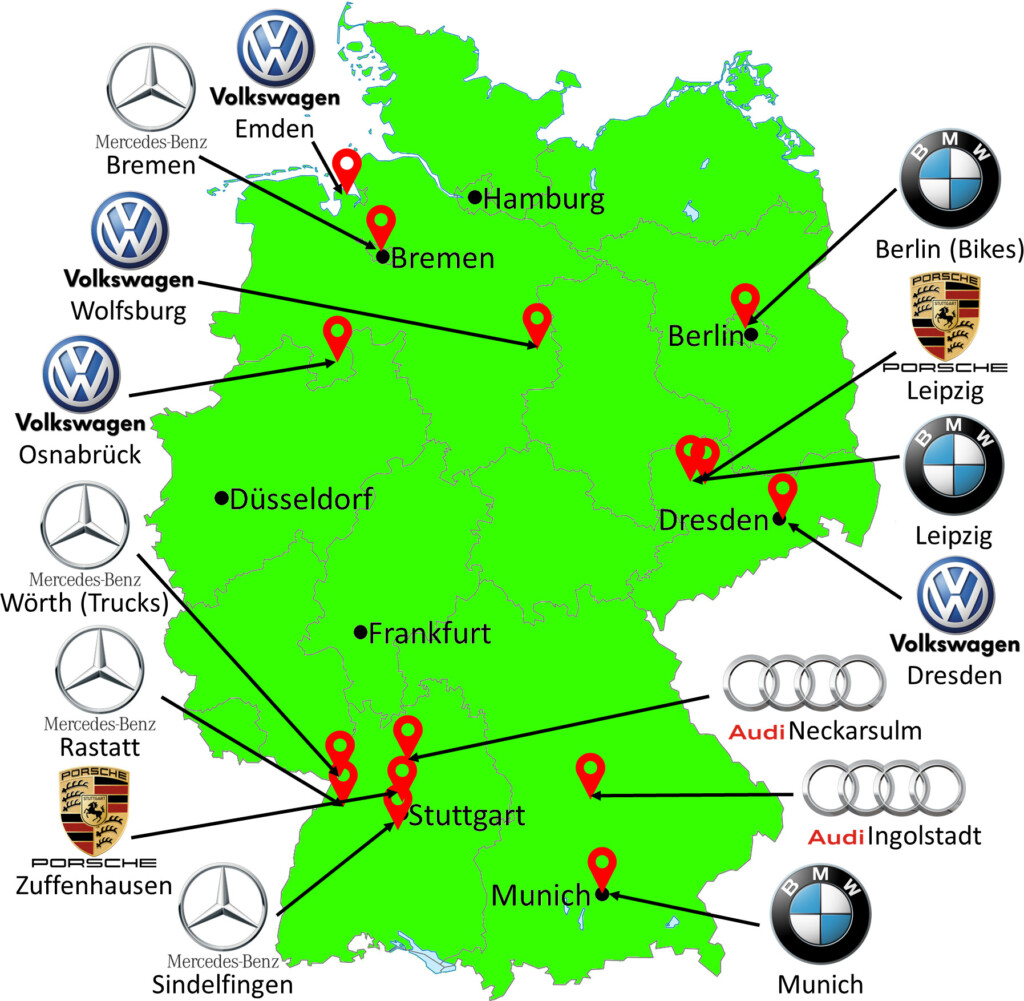
The modern automobile, once a symbol of personal freedom and privacy, has quietly undergone a radical transformation. No longer just a means of transport, today’s connected cars are sophisticated, rolling data centers, constantly collecting an astounding array of personal information about their drivers, passengers, and even their surroundings. This isn’t just about technical specifications or driving performance; it extends to the most intimate details of your life, from where you work to the sound of your voice singing along to your favorite tunes.
For many years, the concept of a car as a private space—a sanctuary for personal conversations, emotional moments, or discreet journeys—was a given. However, that perception, as Jen Caltrider, program director at *Privacy Not Included, starkly points out, “no longer matches reality.” These vehicles are equipped with an ever-expanding suite of sensors, cameras, microphones, and internet connectivity, turning them into vigilant observers of our daily lives, gathering data that can be as revealing as the contents of our smartphones, if not more so.
As we delve deeper into this new automotive landscape, a clearer picture emerges: the convenience of connected features comes at a profound and often hidden cost to personal privacy. This in-depth exploration will unmask the shocking extent of data collection, expose the industry’s practices, and shed light on the critical implications for consumers in an era where our cars know us “far, far better than you think.”

1. **The Astonishing Breadth of Data Collection:**
It might come as a surprise to many drivers, but the data harvested by a new car goes far beyond simple diagnostics or navigation routes. Automakers are admittedly collecting a “wide range of information,” as seen in their privacy policies, that paints an incredibly detailed portrait of individual lives. This includes seemingly innocuous details like “where you work” and “what kind of music you like,” but quickly escalates to far more sensitive categories.
The collection extends to behavioral and even biometric data. We’re talking about information on “your Instagram handle” and “the sound of your voice singing backup to ‘Under Pressure’”. Beyond these personal preferences, modern cars are equipped to record driving behaviors, such as “your seatbelt and braking habits,” providing insights into individual driving styles and safety consciousness. The depth of this surveillance paints a startling picture of how intimately connected vehicles are logging our daily existence.
Furthermore, the scope of data capture can include highly sensitive personal attributes. Mozilla’s *Privacy Not Included, an organization dedicated to consumer education on data use, discovered that car brands collect data ranging from “facial expressions” to “ual activity” and “health diagnosis data.” Such extensive collection raises profound questions about necessity and relevance, particularly when considering the core function of a vehicle: transportation.
The types of data collected are not static; they encompass everything from “speed, steering, brake and accelerator pedal use” to “infotainment settings” and “phone contacts.” The vehicle logs “navigation destinations,” “voice data,” and critically, “your location and surroundings.” In a truly unsettling development, this even extends to “footage of you and your family outside your car,” demonstrating an almost boundless appetite for capturing personal moments.
Read more about: Golfer Ian Poulter’s Legendary $25 Million Car Collection: A Deep Dive into His Elite Ferraris and High-Performance Machines

2. **The Illusion of Consent: How You’re Unknowingly Opting In:**
The reality of this extensive data collection is that, for the most part, consumers have unwittingly consented to it. Automakers, much like tech companies, bury the specifics of their data practices within “hundreds of pages of intentionally wordy legalese” that is, by design, meant to bore and mislead. This strategic obfuscation ensures that very few individuals actually read, let alone understand, the terms and conditions they are agreeing to.
The process of “consent” often boils down to a quick tap of a button. Automakers typically notify users of terms and conditions through “a brief note on your car’s screen, accompanied by a nice large ‘OK’ button.” The immediate need to access features like the navigation system often prompts drivers to “tap that button without thinking about it,” and in doing so, they grant permission for their data to be collected and utilized “in whatever way these companies see fit.”
This means that the act of driving a new car, or even simply being a passenger, can automatically enroll individuals into extensive data-sharing agreements. Senior analyst Parv Sharma of Counterpoint notes that “opting out of data sharing can often be buried in settings and menus that consumers cannot easily find.” This deliberate design choice highlights a broader industry tactic to prioritize data monetization over clear consumer choice.
The problem is exacerbated by the fact that some automakers present opting out as a prohibitive risk. Tesla, for instance, warns consumers that declining data sharing could render their “car may become inoperable” or that crucial features, like “over-the-air update functionality,” may “rely on such connectivity.” This tactic effectively strong-arms consumers into accepting data collection, eroding any genuine sense of voluntary consent and further cementing the illusion of choice.

3. **Cars: Officially “The Worst Product Category for Privacy”:**
The scale and nature of data collection by connected cars have prompted an unprecedented condemnation from privacy advocates. Mozilla’s *Privacy Not Included, a respected organization dedicated to assessing company data practices, conducted a comprehensive review last year that led to a stark conclusion: cars are, unequivocally, “the worst product category we have ever reviewed for privacy.”
This designation is not merely hyperbole; it reflects a deep-seated systemic issue within the automotive industry. Jen Caltrider, program director at *Privacy Not Included, articulates the problem clearly: “There really isn’t much of a middle ground where consumers can access connected features and be certain their privacy is also being respected.” This absence of a balanced choice is a critical failing in consumer protection.
The implications of this “privacy nightmare” extend far beyond the individual driver. As Misha Rykov, a researcher at *Privacy Not Included, highlights, “cars are unique — their privacy flaws impact not just the driver, but also passengers and sometimes even nearby pedestrians.” The omnipresent sensors mean that simply being in or near a connected vehicle can subject individuals to data collection, turning what was once a private space into a public, observable entity.
The comprehensive “failing marks” given to 25 major car brands by Mozilla in their September report underscore the widespread nature of this problem. Their headline, “It’s Official: Cars Are the Worst Product Category We Have Ever Reviewed for Privacy,” serves as a stark warning to consumers about the inherent risks associated with modern vehicles. It’s a wake-up call that the industry, left to its own devices, has failed to uphold basic privacy standards.

4. **Top Offenders, Part 1: Nissan’s Unsettling Data Harvest:**
Among the array of automakers scrutinized for their data practices, Nissan stands out as the “very worst offender.” The Japanese car manufacturer’s privacy policy explicitly admits to collecting an extraordinarily wide and deeply personal range of information, pushing the boundaries of what consumers might reasonably expect a vehicle to know about them.
Nissan’s stated collection includes categories as sensitive as “ual activity,” “health diagnosis data,” and even “genetic data.” The alarming aspect is not just *what* they collect, but the vagueness surrounding *how* this information is obtained and utilized. This lack of specificity in their policy only heightens concerns about potential misuse and the sheer audacity of requesting such intensely private details.
Beyond collection, Nissan also admits to sharing and selling a comprehensive profile of its consumers. Their policy indicates they can disseminate “preferences, characteristics, psychological trends, predispositions, behavior, attitudes, intelligence, abilities, and aptitudes” to a broad network of recipients. These include “data brokers, law enforcement, and other third parties,” demonstrating a willingness to widely distribute deeply personal insights.
This practice creates a significant potential for individual profiling and manipulation, far exceeding what would be considered necessary for vehicle operation or safety. The explicit mention of sharing with “data brokers” confirms a commercial intent behind this intrusive collection, turning deeply personal data into a monetizable asset, often without the individual’s genuine understanding or control.

5. **Top Offenders, Part 2: Kia’s Policy on “Sex Life” and More:**
While Nissan takes the unenviable top spot, other major automakers exhibit equally troubling data collection and sharing practices. Kia, for example, has a privacy policy that explicitly states its capacity to collect information about a user’s ” life,” a revelation that has understandably sparked significant alarm among privacy advocates and consumers alike.
This intrusive data point, alongside others, highlights a disturbing trend where vehicle manufacturers delve into areas of personal life that have no apparent connection to automotive function. When combined with their willingness to share data with law enforcement, Kia’s policy raises critical questions about the scope and justification of their data-gathering efforts.
Beyond these deeply personal revelations, other top offenders contribute to the pervasive privacy problem. Volkswagen is noted for collecting “demographic data (like age and gender) and driving behaviors (like your seatbelt and braking habits)” for the explicit purpose of “targeted marketing.” This shows how everyday driving actions are directly fed into commercial profiling, impacting consumers in ways they might not even realize, such as through personalized advertisements or even insurance rate adjustments.
Toyota, another major player, contributes to the obfuscation through sheer volume, featuring “a near-incomprehensible galaxy of 12 privacy policy documents.” This excessive number of documents makes it virtually impossible for an average consumer to navigate and understand the full scope of data collection and usage, effectively creating a barrier to informed consent.
Mercedes-Benz also raises concerns by manufacturing certain models with TikTok pre-installed, an application with its own well-documented privacy issues, further integrating third-party surveillance into the driving experience.

6. **The Hidden Role of Car Apps in Data Harvesting:**
In an increasingly connected world, few products exist without a companion application, and cars are certainly no exception. While these associated apps offer undeniable conveniences, such as helping locate a vehicle in a crowded parking lot or enabling remote starting, they also introduce “a new level of complexity (and creepiness)” by serving as additional conduits for collecting highly personal data.
These apps are not merely remote controls; they are potent data vacuums, often designed to gather “even more personal data, like location and biometric information.” This means that the vehicle itself is not the sole point of collection; your smartphone, through its interaction with the car’s app, becomes an extension of the automotive data ecosystem, broadening the scope of surveillance significantly.
The governance of these apps can be surprisingly “convoluted,” adding another layer of opacity to the data collection process. For instance, the context points out a peculiar arrangement where “BMW USA, for example, manages an app for Toyota.” Such inter-company management can blur the lines of responsibility and make it even more challenging for consumers to understand precisely who is collecting, processing, and retaining their information.
Ultimately, these apps represent a potent expansion of the car’s data-harvesting capabilities, transforming the vehicle from a standalone data collector into an integral part of a larger, interconnected personal data network. The seamless integration of app functionality often comes at the unstated cost of increased personal data exposure, turning everyday convenience into an ongoing privacy compromise.

7. **”Privacy Washing” and Non-Binding Promises:**
In response to growing public scrutiny and calls for accountability, many car brands engage in a practice aptly termed “privacy washing.” This is the deceptive act of “pretending to protect consumers’ privacy while not actually doing so,” creating an illusion of commitment without implementing genuine safeguards. It’s a strategic maneuver to alleviate consumer concerns without altering underlying data practices.
A prime example of this “privacy washing” is the industry’s embrace of initiatives like the “automotive Consumer Privacy Protection Principles.” While signing onto such principles might project an image of responsibility, the critical detail is that “these principles are nonbinding and created by the automakers themselves.” This self-regulatory approach inherently lacks the teeth and independent oversight necessary to enforce meaningful privacy protections.
Worse still, the signatories of these self-created principles frequently fail to adhere to their own stated commitments. The concept of “Data Minimization,” for instance—which advocates for collecting “only the data that is needed”—is often ignored. This discrepancy between declared principles and actual practices highlights the superficiality of such initiatives and the industry’s reluctance to genuinely limit its data collection appetites.
The Australian context provides a similar illustration of this phenomenon with the “Voluntary Code of Conduct for Automotive Data and Privacy Protection” promoted by the Federal Chamber of Automotive Industries (FCAI). This “weak document seems designed to comfort consumers without adding any privacy protections beyond existing legal obligations,” and crucially, “there are no penalties for ignoring the code.” Such voluntary frameworks serve more as public relations tools than as substantive commitments to privacy.

8. **The Labyrinthine World of Automotive Privacy Policies:**
Understanding what your car knows about you quickly confronts the industry’s privacy policies. Far from offering clarity, these documents often create an intricate web of legalese designed more to obscure than to enlighten. This deliberate obfuscation is a primary reason why meaningful consent remains largely nonexistent for consumers.
Automakers consistently present privacy policies that are notoriously confusing, lengthy, and vague, making them virtually impenetrable to the average driver. Toyota, a major global player, exemplifies this issue by featuring “a near-incomprehensible galaxy of 12 privacy policy documents.” Navigating such an expanse of legal text is not only time-consuming but effectively prevents consumers from grasping the full implications of their data usage. Brands like Audi and Tesla also contribute to this problem with their own complex and often opaque policies.
Beyond just reading these documents, consumers face difficulty raising privacy concerns or seeking clarification. Mozilla researchers, in their extensive review, found that “12 companies representing 20 car brands didn’t even respond to emails” seeking information. This lack of responsiveness underscores an industry-wide reluctance to engage transparently with consumers about their data practices, leaving drivers with very little recourse or genuine understanding.
This systemic issue ensures that the “consent” given by tapping an “OK” button is an illusion. Without accessible, clear policies and responsive channels, consumers are left in the dark, effectively signing away data rights without full comprehension. It’s a fundamental breakdown in trust and transparency that demands urgent attention from regulators.
9. **Unsettling Alliances: Data Sharing with Law Enforcement and Governments:**
The privacy concerns surrounding connected cars take an even more unsettling turn when considering automakers’ practices of sharing personal information with law enforcement and government entities. This isn’t always about a court order or a specific warrant; the threshold for such disclosures can be surprisingly low, raising serious questions about consumer protections and the potential for misuse.
Hyundai’s privacy policy, for instance, explicitly states its capacity to share data with law enforcement and governments based on “formal or informal” requests. The inclusion of “informal” is particularly alarming, suggesting that sensitive personal data, potentially including location history or voice recordings, could be handed over without robust legal safeguards. This broad discretion given to automakers significantly erodes the concept of a car as a private space.
Similarly, Kia’s policy indicates they may share data in many scenarios “if, in our good faith opinion, such is required or permitted by law.” While seemingly innocuous, this language grants the company significant latitude, allowing them to interpret what is “permitted” and potentially enabling data sharing for reasons that may not align with a driver’s expectation of privacy. Such vague clauses highlight how easily personal information can transition from a private vehicle to governmental databases.
The implications are profound. If a car can reveal your persistent, precise location, much like a mobile phone, and this information can be shared based on “informal” requests, it poses a direct threat to civil liberties. Connected vehicles become potential surveillance tools for authorities, logging every journey without the driver’s explicit knowledge or full understanding of the process.

10. **The Inevitable Risk: Rampant Data Breaches in the Automotive Sector:**
Even with robust privacy policies and careful data handling—which, as we’ve seen, are often lacking—the sheer volume and sensitivity of the data collected by connected cars create an irresistible target for cybercriminals and a constant risk of internal misuse. The automotive industry is, unfortunately, no stranger to serious data leaks and breaches, making the “privacy nightmare” even more tangible for consumers.
Reports have unveiled disturbing incidents, such as Tesla employees internally circulating “intimate footage collected from people’s private cars for their own amusement” between 2019 and 2022. This egregious breach of trust wasn’t a sophisticated hack but an internal lapse, demonstrating that even with advanced technology, human factors can lead to deeply invasive privacy violations. The fact that sensitive video recordings from private vehicles were used for entertainment underscores a severe lack of internal controls and respect for consumer privacy.
Beyond internal misuse, external breaches also plague the industry. Volkswagen and Toyota, two automotive giants, have both been implicated in incidents leaking “the personal information of millions of customers.” Such large-scale breaches can expose a trove of sensitive data, from demographic details and driving behaviors to contact information, putting consumers at risk of identity theft, targeted scams, and other forms of digital harm.
The pervasive nature of these breaches, both internal and external, serves as a stark reminder that no data collection system is entirely foolproof. When companies amass “a large amount of sensitive data,” as the FTC warns, it inherently creates security risks. The automotive sector’s track record with data breaches further amplifies the need for stringent regulations and robust security measures, not just vague promises, to protect the incredibly personal information entrusted to these vehicles.

11. **The Lucrative Business of Your Data: Financial Incentives and Monetization:**
Behind the veneer of enhanced features and convenience, there lies a powerful, often hidden, driving force for extensive data collection in connected cars: staggering financial incentives. The monetization of car data is rapidly evolving into a colossal industry, transforming personal information into a highly valuable commodity for automakers and a growing ecosystem of third parties. This economic imperative profoundly shapes the industry’s approach to privacy.
Analysts estimate that by 2030, car data monetization could burgeon into an industry worth an astonishing “$750 billion.” A McKinsey report from 2021 provides a more conservative yet still immense prediction, suggesting that various use cases for car-data monetization could deliver “$250 billion to $400 billion in annual revenue for industry players” by the same year. These figures illustrate the immense economic pressure on manufacturers to collect as much data as possible, seeing it as a goldmine rather than a consumer privacy concern.
This monetization manifests in various ways, often without the consumer’s full awareness. Driving habits and car-usage details, for example, are being reported to data collectors and subsequently shared with insurance carriers for “rate decisions.” This means that every acceleration, brake, and turn could be directly influencing your insurance premiums, a practice distinct from usage-based insurance where drivers explicitly opt-in to tracking for potential lower rates. The sale of driver data to insurance companies has particularly worried internet privacy advocates.
Furthermore, automakers openly admit to sharing and selling comprehensive profiles of their consumers, including “preferences, characteristics, psychological trends, predispositions, behavior, attitudes, intelligence, abilities, and aptitudes,” to “data brokers, law enforcement, and other third parties.” This turns deeply personal insights into monetizable assets, highlighting how business model incentives often outweigh the need for meaningful privacy safeguards, as the FTC critically observes. The relentless pursuit of this lucrative revenue stream makes genuine data minimization a formidable challenge for the industry.

12. **Navigating the Privacy Maze: Limited Consumer Options and Empowerment:**
Given the extensive data collection and sharing practices, consumers are naturally left wondering what recourse they have to protect their privacy in this new automotive landscape. The unfortunate reality is that “consumers have very little control” over their data once they enter the world of connected cars, making meaningful empowerment a significant challenge. However, a few options, albeit limited, do exist for those determined to regain some semblance of privacy.
One increasingly less practical, yet still valid, option is to purchase an older vehicle that predates the era of embedded connectivity and extensive data harvesting. This choice completely sidesteps the issue of in-car data collection, but it also means foregoing the modern safety, convenience, and entertainment features that many drivers now expect. It’s a trade-off that highlights the dilemma consumers face: privacy versus technology.
For those with connected cars, navigating the manufacturer’s privacy settings is a crucial, though often frustrating, step. While “most car manufacturers provide options to opt out of unnecessary data sharing,” these settings are frequently “buried in settings and menus that consumers cannot easily find.” Furthermore, opting out can come with significant trade-offs, as it “often requires disabling useful or desirable features” like navigation, remote unlock, or vital service-related updates. Tesla even warns that declining data sharing could render a car “inoperable” or affect critical functionalities like over-the-air updates.
Beyond manufacturer-provided settings, resources like Privacy4Cars offer practical guidance for drivers. This platform provides detailed instructions on how to remove sensitive information from a vehicle’s infotainment and telematics systems before selling, trading-in, or returning a leased car. It covers essential steps such as “clearing navigation histories,” “removing paired devices” that store call logs and contacts, and “disabling connected services” to stop further data transmission.
Ultimately, consumers must remain vigilant, periodically reviewing privacy settings and actively researching a carmaker’s protections before purchase. However, as the FTC points out, “firms do not have the free license to monetize people’s information beyond purposes needed to provide their requested product or service,” underscoring the need for industry accountability beyond individual consumer efforts.

13. **Emerging Shields: Regulatory Scrutiny and Legislative Responses:**
The escalating concerns surrounding automotive data collection have not gone unnoticed by regulators and policymakers, signaling a growing momentum towards greater accountability and consumer protection. While industry self-regulation has proven largely ineffective, government bodies are increasingly stepping in, recognizing the profound implications for privacy and national security. This burgeoning regulatory landscape offers a glimmer of hope for curbing the industry’s unrestrained data appetites.
In the United States, several federal and state initiatives are underway. The Federal Trade Commission (FTC) has had connected cars “on its radar for years,” highlighting concerns ranging from unexpected secondary uses of data to security risks, and emphasizing that “geolocation data is sensitive and subject to enhanced protections under the FTC Act.” Recent enforcement actions, such as those against X-Mode and InMarket for unlawful use of location data, underscore the FTC’s commitment to protecting consumers against illegal collection, use, and disclosure of personal data.
At the state level, California is leading the charge, with the California Privacy Protection Agency announcing a review of the connected vehicle industry. This, coupled with laws in states like California, Colorado, and Connecticut, which allow consumers to submit requests about collected information and opt out of data sales, demonstrates a legislative trend towards empowering consumers. Senator Edward J. Markey (D-Mass.) has also been vocal, demanding answers from 14 car manufacturers and asserting that “Self-regulation has failed. The federal government must be a leader in the fight to protect consumers’ right to privacy.”
Internationally, the European Union’s General Data Protection Regulation (GDPR) sets a high bar, with brands like Renault, which must comply with this stringent law, identified as the “least problematic” by Mozilla researchers. Australia is also recognizing the urgent need for reform, as its current privacy laws are “not up to the task” of protecting the vast amount of personal information collected by cars. Proposed changes, such as an updated definition of “personal information” and higher standards for “consent,” along with a “fair and reasonable test,” aim to address these deficiencies, advocating for international cooperation on enforcement.
These actions, ranging from FTC enforcement to state-level legislation and international reforms, collectively indicate that the era of unchecked data collection by automakers may be drawing to a close. The growing regulatory scrutiny pushes for a future where car manufacturers are compelled to build products with robust safeguards that genuinely protect consumers, rather than merely paying lip service to privacy.

14. **Beyond the Hype: Distinguishing Essential Data from Excessive Surveillance:**
As the automotive world continues its rapid technological evolution, it’s crucial to distinguish between data collection that genuinely enhances safety and functionality and that which crosses into excessive, unwarranted surveillance. Not all data collection is inherently nefarious; indeed, some telemetry is vital for the modern vehicle, but the line between necessary utility and intrusive profiling has become increasingly blurred. The industry must move beyond its current practices to build trust and genuinely serve consumers.
There are undeniably valid reasons for connected cars to gather certain types of data. Functions related to “safety and security,” such as automatic crash notification or predictive maintenance, rely on data to operate effectively. For instance, manufacturers can determine if a part is failing sooner than expected to issue a recall, as James Hodgson of ABI Research points out. These applications leverage data to make driving safer and more reliable, providing tangible benefits to vehicle owners and the public.
However, the industry’s current appetite extends far beyond these essential purposes. The collection of “ual activity,” “health diagnosis data,” “facial expressions,” “voice data,” and “footage of you and your family outside your car,” coupled with the formation of “inferences about a driver’s intelligence, abilities, characteristics, preferences and more,” clearly oversteps the bounds of what is necessary for transportation. As Jen Caltrider aptly states, the amount of personal information collected is “beyond what is necessary to get someone from Point A to Point B safely.”
The path forward requires a fundamental shift in mindset from automakers. Instead of viewing every piece of data as a monetizable asset, companies must embrace “Data Minimization”—collecting “only the data that is needed.” This principle, often ignored despite being part of industry self-proclaimed codes, is foundational to respecting consumer privacy. Building trust means prioritizing safeguards and transparency, ensuring that any data collected serves a legitimate and clearly communicated purpose that directly benefits the consumer, without compromising their fundamental right to privacy. The easiest way companies can avoid harming consumers is by simply not collecting sensitive information in the first place, allowing technology to serve, not surveil.
The road ahead for connected cars is undeniably paved with incredible technological advancements, promising a future of enhanced safety, convenience, and efficiency. Yet, beneath the gleaming surfaces and intelligent systems, a profound battle for personal privacy is being waged. As our vehicles transform from mere machines into intelligent companions, they are simultaneously becoming powerful, all-seeing data-harvesting entities. It’s a stark reminder that in an increasingly connected world, the price of convenience must not be the erosion of our most fundamental right: the right to privacy. For consumers, awareness and vigilance are paramount, but ultimately, it is through robust regulation and a renewed ethical commitment from the industry that we can reclaim our cars as truly private spaces, ensuring that our journeys remain our own.




